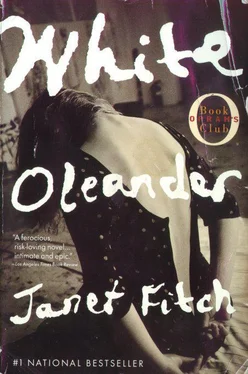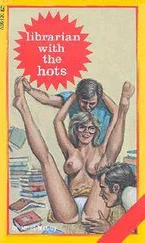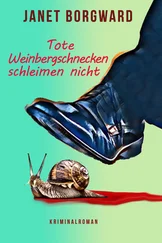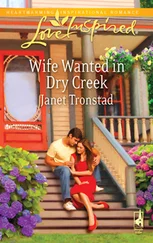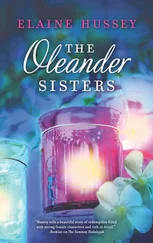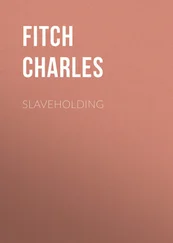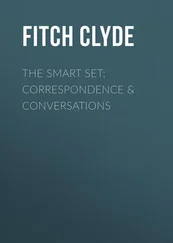Janet Fitch - White Oleander
Здесь есть возможность читать онлайн «Janet Fitch - White Oleander» весь текст электронной книги совершенно бесплатно (целиком полную версию без сокращений). В некоторых случаях можно слушать аудио, скачать через торрент в формате fb2 и присутствует краткое содержание. Жанр: Современная проза, на английском языке. Описание произведения, (предисловие) а так же отзывы посетителей доступны на портале библиотеки ЛибКат.
- Название:White Oleander
- Автор:
- Жанр:
- Год:неизвестен
- ISBN:нет данных
- Рейтинг книги:3 / 5. Голосов: 1
-
Избранное:Добавить в избранное
- Отзывы:
-
Ваша оценка:
- 60
- 1
- 2
- 3
- 4
- 5
White Oleander: краткое содержание, описание и аннотация
Предлагаем к чтению аннотацию, описание, краткое содержание или предисловие (зависит от того, что написал сам автор книги «White Oleander»). Если вы не нашли необходимую информацию о книге — напишите в комментариях, мы постараемся отыскать её.
White Oleander — читать онлайн бесплатно полную книгу (весь текст) целиком
Ниже представлен текст книги, разбитый по страницам. Система сохранения места последней прочитанной страницы, позволяет с удобством читать онлайн бесплатно книгу «White Oleander», без необходимости каждый раз заново искать на чём Вы остановились. Поставьте закладку, и сможете в любой момент перейти на страницу, на которой закончили чтение.
Интервал:
Закладка:
At night Eduardo played guitar and sang gypsy songs with the guests at his hotel, as I rocked in my hammock like a bat folded into leathery wings. At night the air was full of bats. The fruit, my mother said, mangos and platanos and papayas. Fairy circles of ringworm came out all over my body. A doctor in a block concrete clinic gave me medicine. Can’t we ever go home? I asked my mother. We have no home, she told me. I am your home.
How beautiful she was barefoot in a bathing suit and a tablecloth wrapped around her hips. My mother loved me. Even now, I could feel myself rocking in that hammock while Eduardo and my mother danced. You were my home.
But the weather turned and Eduardo closed the hotel for the season, went back to Mexico City, where his parents lived. He said we could stay on if we liked. It was sad and scary. We closed the shutters and the wind began to blow, the gentle sea rose and ate the beach, running into the grape hyacinth. There were no tourists now. We ate from cans, frijoles refritos, evaporated milk. Cats poured into the hotel, skinny, feral, or just abandoned for the season. My mother let them all in and the sky was a yellow-tinged bruise.
The rain when it came arrived sideways, bleeding in through the shutters and under the doors. The cats hid in the shadows. Occasionally we felt the brush of their bodies or tails as we sat at the table, my mother writing by the light of a kerosene lantern. The cats were hungry but my mother ignored their mewing as we ate.
In the end, my mother locked up the hotel and some students took us to Progreso on the Gulf. The boat from Texas stank of fish. The captain gave me a pill, and I woke up on somebody’s couch in Galveston.
“WE GOT HER,” said the plainclothesman in his white socks. “We caught her trying to see the kid. Says she was visiting her sister. You know damn well she shot you. Why make up a story about burglars? She’s not even your mother.”
If I were Starr, maybe I would have shot me too. Maybe I would have painted the doorknobs with oleander like my mother, if Ray had said he didn’t love me anymore. It was hard for me to focus. Starr in her nightgown, my mother in her blue dress. Barry holding a cloth to my forehead. Why did it seem all the same, why did it melt together like crayons left in the car on a summer day? The only one who stood distinct was Davey. This cop was giving me a headache and I needed more Demerol.
LETTERS CAME from my mother. A girl my age, a hospital volunteer, with fluffy brown hair and pale green eye shadow, tried to read them to me, but it was way too surreal, my mother’s words in her high ignorant voice, I made her stop.
Dear Astrid,
They say they don’t know if you will last until morning. I pace the cell’s three steps, back and forth, all night. A chaplain just came by, I told him I’d rip out his liver if he bothered me again. I love you so much, Astrid. I can’t bear it. There is no one else in the world but you and me, don’t you know that? Please don’t leave me alone here. By all the powers of light and darkness, please, please don’t leave.
I read that paragraph over and over again, savoring each word, the way Starr would read her Bible. I drifted off to sleep hearing it in my head. You were my home, Mother. I had no home but you.
Freude! Beethoven’s ninth, Ode to Joy, the Solti version, Chicago Symphony. To think that I almost lost you! I live for you, the thought that you’re alive gives me the strength to go on. I wish I could hold you now, I want to touch you, hold you, feel your heartbeat. I’m writing a poem for you, I’m calling it “For Astrid, Who Will Live After All.”
News travels fast in prison, and women I’ve never spoken to inquire after your condition. I feel akin to each one of them. I could kneel down and kiss the stale earth in gratitude. I will try for a compassionate visit, but I have no illusions about the extent of compassion here.
What can I say about life? Do I praise it for letting you live or damn it for allowing the rest? Have you heard of the Stockholm syndrome? Hostages begin taking the side of their captors, in their gratitude not to have been killed outright. Let us not thank some hypothetical God. Instead, rest and gain strength for the new campaign. Though I know, it’s candy-stripers and Highlights, maybe a morphine drip if you’re a good girl. Be strong.
Mother.And she never once said I told you so.
A MAGICIAN CAME to entertain us, and I was mesmerized by his beautiful hands, his fluid, round gestures. I couldn’t stop watching his hands. They were better than any of his tricks. He pulled a bouquet of paper flowers out of the air and gave them to me with a courtly bow, and I thought love was like that, pulled out of the air, something bright and unlikely. Like Ray, molding me in his fingers like soft wax.
Ray. I tried not to think of him, what had made him run when I lay bleeding on my bedroom floor, shot by his lover. I knew why he wasn’t there when the ambulance came. It was how I felt when I thought of Davey, that I had ruined his life for him. Ray couldn’t face it. He hadn’t wanted us to happen in the first place, I was the one who created it, out of nothing but my own desire. It was like Ray knew it was going to happen from the very first time we touched. Every time he looked at me his eyes pleaded with me to leave him alone. I wished I could see him, just once, and tell him I didn’t blame him.
Sometimes I woke up and I was sure he would come, disguised, that we would be together again. There would be a glimpse of a strange intern, an unfamiliar orderly, a visitor searching for the right bed in the children’s ward, and I was sure it would be him. I didn’t blame any of them. I should have known what could happen. After my mother and Barry, how could I not have known.
The only innocent one was Davey. At first I wondered why Starr had left him behind. Probably thought she could make an easier getaway. Maybe she was so freaked out she completely forgot him. But now I knew it was Davey. That he had refused to go and leave me to bleed to death on the bedroom floor. He had refused to go. He had given up his mother to keep me alive for the ambulance. Knowing Davey, that was it. And I was deluged by fresh waves of shame and regret. He never knew when he met me that first day, when the little boys sat on the porch, that I would be the one to ruin his life the way Starr crushed his model in the living room. I stepped on it running to meet Ray.
MY MOTHER SENT me her poem “For Astrid, Who Will Live After All.” There were a couple of lines I couldn’t get out of my head:
After all the fears, the warnings
After all
A woman’s mistakes are different from a girl’s
They are written by fire on stone
They are a trait and not an error . . .
It was worse than I told you so. I didn’t want to believe it. I was still a girl, only fourteen. I could still be saved, couldn’t I? Redeemed. I could live a different life, I would go and sin no more. I scowled when the physical therapist flirted with me, a lean young man, kind, handsome. It took half the day to walk up and down the corridor. They moved me from Demerol to oral Percodan.
IF I HAD had anywhere to go to, I could have been released after two weeks, but as it was, I recuperated on the county dollar until I could walk with a cane and the bandages came off. Then I was given a new placement, sent off with a thirty-day prescription for Percodan and my mother’s letters and books, the wooden box, and a lost boy’s poster of animal turds.
10
THE AIR IN VAN NUYS was thicker than in Sunland-Tujunga. It was a kingdom of strip malls and boulevards a quarter-mile across, neighborhoods of ground-hugging tracts dwarfed by full-growth peppers and sweet gums fifty feet high. It looked hopeful, until I saw a house down the street, and prayed, please Jesus, don’t let it be the turquoise one with the yard paved in blacktop behind the chain-link fence.
Читать дальшеИнтервал:
Закладка:
Похожие книги на «White Oleander»
Представляем Вашему вниманию похожие книги на «White Oleander» списком для выбора. Мы отобрали схожую по названию и смыслу литературу в надежде предоставить читателям больше вариантов отыскать новые, интересные, ещё непрочитанные произведения.
Обсуждение, отзывы о книге «White Oleander» и просто собственные мнения читателей. Оставьте ваши комментарии, напишите, что Вы думаете о произведении, его смысле или главных героях. Укажите что конкретно понравилось, а что нет, и почему Вы так считаете.
